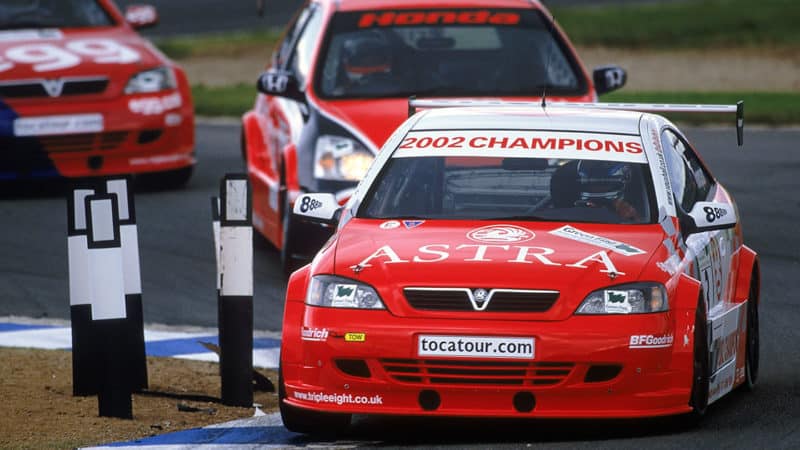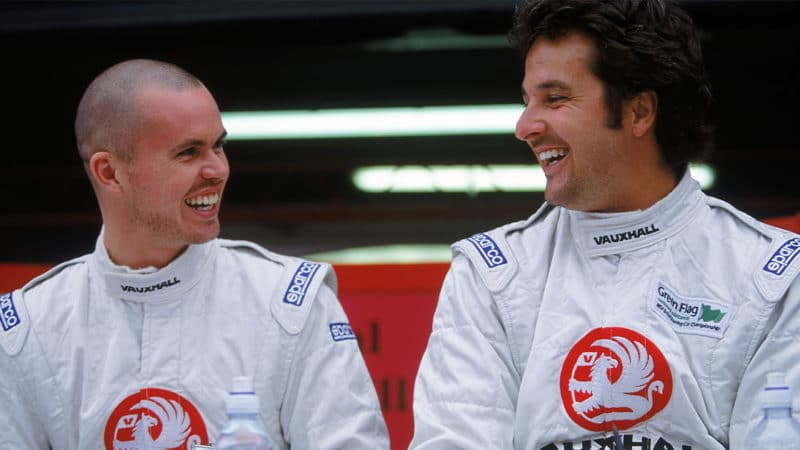The championship attempted to right itself by introducing cheaper cars with simpler technology but at first there were only three takers – Vauxhall, Peugeot and MG, plus a few independents – leading to a seven-car top class grid entered for the 2001 opener at Brands Hatch.
As often happens when a new set of tech rules come in, Triple Eight had spotted the chance to get ahead of the opposition with its new car – and did so spectacularly.
“It was back in the days where we had a proper design team and a proper budget and a proper time to do things,” says then Triple Eight engineer Kevin Berry.
“Ludo Lacroix was the technical director and John Morton was chief designer. We started during the summer of 2000, when the Vauxhall Vectra wasn’t that strong in Super Touring.
“With the new regulations coming along, I think we were probably aware that we were one of the main players, because we still had a strong manufacturer programme designing a new car [in comparison to competitors].”
The new Astra had a similar power output to its predecessor but was heavier (due to less carbon composite components) and less advanced tech used in various areas.
Berry describes the new rules as being “much more cut and dry.” The days of Williams bringing several truck loads of tyres to test its Renault Laguna or Ford gluing its Mondeo windscreen wipers in a certain position for qualifying trim – as it was known to do in ’98 – were over.
When Plato and Muller first came to test the Astra in Spain for pre-season, the former admits to at first being disappointed, then coming to a slow realisation that he might have something special on his hands.



